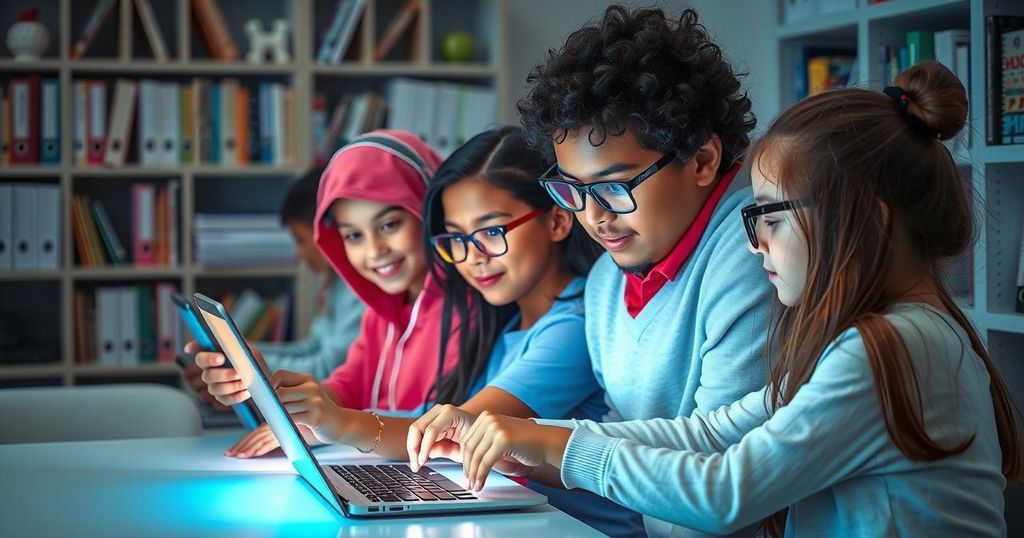Transformative Technologies in K-12 Education: Opportunities and Challenges
Technology is drastically changing K-12 education through AI tools like ChatGPT and immersive learning environments. Educators face challenges in maintaining academic integrity, effectively using data, and addressing privacy concerns. The potential benefits of these technologies are balanced by the need to adapt teaching methods and ensure equitable learning opportunities as funding resources dwindle.
In recent years, technology has been rapidly transforming K-12 education, ushering in an era filled with opportunities and challenges. The advent of AI, especially tools like ChatGPT, has sparked discussions among educators about potential benefits and pitfalls in the classroom. While the promise of technology lies in democratizing education, ensuring that each student thrives remains the primary goal amidst dwindling resources due to the expiration of pandemic relief funds. \n\nExamining classroom dynamics in 2023 reveals a growing reliance on generative AI, which generates human-like responses to a variety of queries. This development worries educators about academic integrity but simultaneously presents opportunities to enhance learning experiences through tailored assignments and feedback. Such tools could lift some burdens from teachers’ shoulders, allowing them to focus on fostering creativity and personal connection with their students. \n\nMoreover, immersive technologies—virtual and augmented reality—are set to revolutionize learning environments. The potential for students to craft their own interactive experiences offers a vibrant avenue for understanding complex concepts like climate change through firsthand exploration. As technological innovations continue to evolve, incorporating AI into these simulations could further enrich the educational experience. \n\nEqually significant is the trend of gamification, where engaging video content motivates students through rewards. Yet, caution is warranted, as this approach may fail to drive broader educational enthusiasm. Educators hope to refine this model, encouraging critical thinking and diverse problem-solving approaches rather than merely rewarding quick answers. \n\nAs technology infiltrates classrooms, vast amounts of data are also accumulated, revealing insights into students’ progress. However, the challenge lies in utilizing this data effectively. Ensuring that educators can access and analyze this information remains paramount, especially as concerns surrounding data privacy grow in the face of rising cyber threats. Ultimately, technology is pushing educators to reevaluate traditional teaching methods, presenting a unique opportunity to innovate and cater to the diverse needs of learners today.
The last few years have seen a whirlwind of changes in K-12 education, driven largely by advancements in technology. Notably, the surge of artificial intelligence tools like ChatGPT has opened new dimensions of learning, alongside emerging immersive technologies that promise to redefine how students engage with content. The closure of pandemic-related funding sources—such as the ESSER program—forces schools to strategically address these changes amid tightening budgets. This backdrop blends hope with challenges as educators strive to harness technology’s potential while ensuring equitable learning opportunities for all students.
In conclusion, the evolving landscape of K-12 education is being reshaped by technology, particularly AI and immersive learning tools. This transformation presents both remarkable opportunities for enhancing student engagement and significant concerns, particularly regarding the effective use of data and privacy. As educators navigate these new waters, their focus will remain on ensuring that every student has the chance to succeed, embracing innovation while being mindful of the inherent challenges.
Original Source: news.stanford.edu




Post Comment